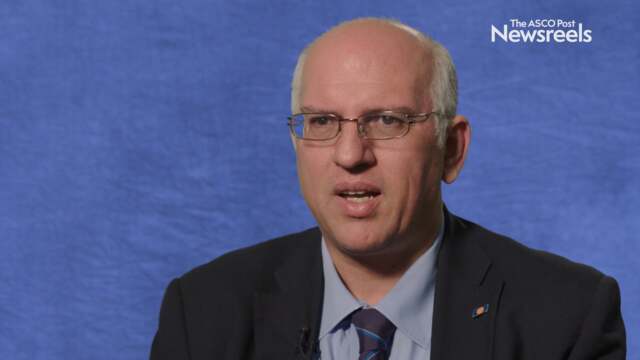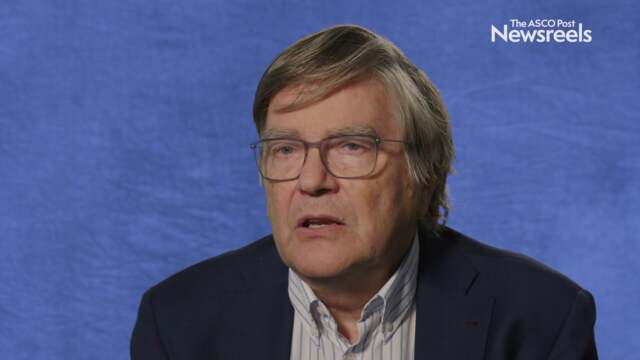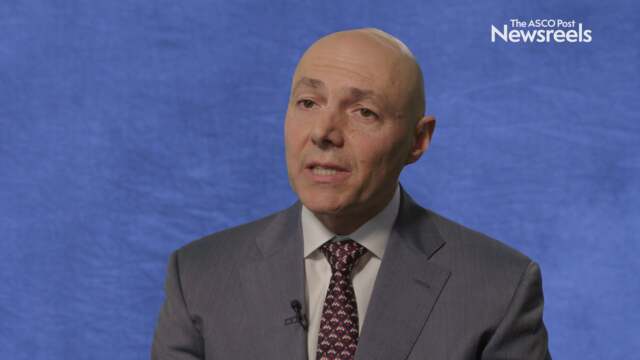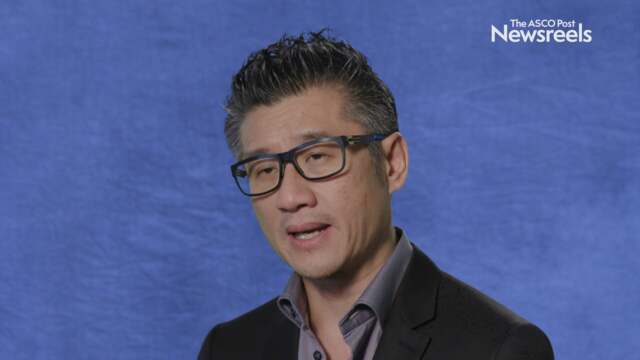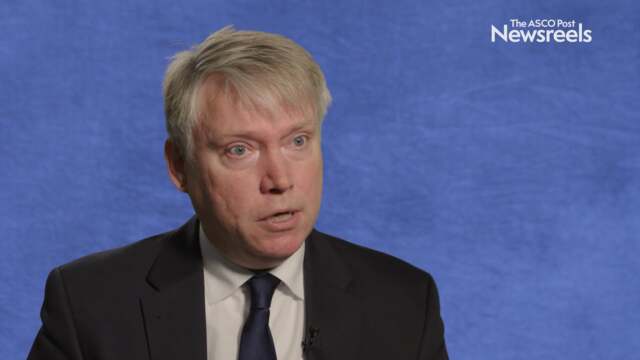Caroline Robert, MD, PhD, on Immunotherapy Toxicities: Expert Perspective
ESMO 2018 Congress
Caroline Robert, MD, PhD, of Gustave Roussy Cancer Centre, discusses managing toxicities of immunotherapy, including neurotoxicity, and treating beyond acute adverse events.
Paolo A. Ascierto, MD, of Istituto Nazionale Tumori–Fondazione Pascale, discusses the breakthroughs in melanoma treatment and the challenges of managing toxicities, especially endocrine and neurologic side effects, which can require lifetime hormone replacement and may cause permanent dysfunction.
Matti S. Aapro, MD, of the Genolier Cancer Centre, discusses the optimal treatment and supportive care for older patients with cancer, including the importance of maintaining dose density and intensity as well as monitoring toxicity.
Ezra E.W. Cohen, MD, of the University of California, San Diego, discusses the effectiveness of anti–PD-1 therapy in patients with recurrent head and neck cancer and the studies that might help predict who will benefit, how to combine agents, and ways to reduce long-term toxicity.
Tony Mok, MD, of the Chinese University of Hong Kong, discusses two important studies in non–small cell lung cancer: FLAURA, which looked at the first-line activity of osimertinib and the mechanisms of resistance; and ALESIA, which examined crizotinib dosing.
Martin Reck, MD, PhD, of the LungenClinic, discusses recent updates on biomarkers beyond PD-L1 expression; mechanisms and management of resistance; as well as combinations and novel approaches in lung cancer.
